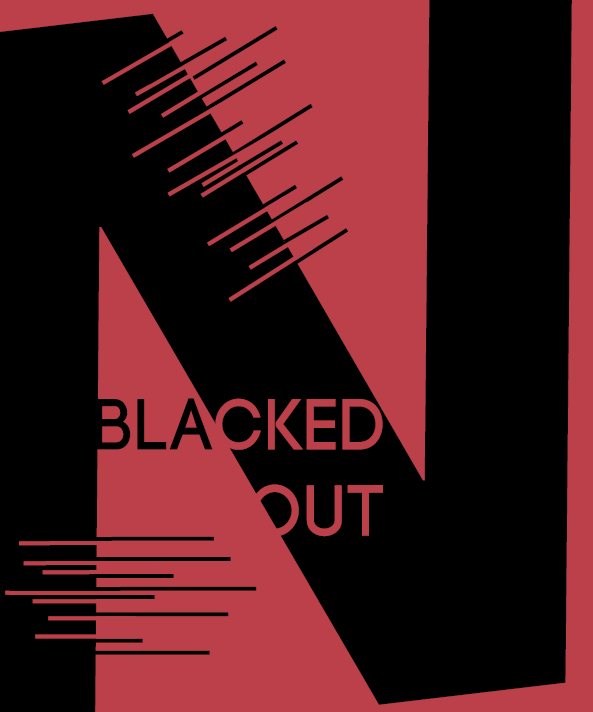
In Toni Morrison’s novel “Beloved,” the word n —– is used 37 times. In Harper Lee’s “To Kill a Mockingbird,” it’s used 48 times. In Mark Twain’s “The Adventures of Huckleberry Finn,” 217. These books are all part of the reading curriculum at MVHS. And despite the derogatory history of the word, n iiiii can still be heard throughout the school halls today.
The first and only time that senior Abby Teklu heard n —– at MVHS was while walking down the school stairs. She heard a group of boys joking around with each other. The derogatory term was integrated into their humor. It unsettled her how the word n —– was said repeatedly, like rapid-fire.
Yet, despite the words bothering her, Teklu didn’t say anything — she just walked away. She doesn’t consider herself a confrontational person. And it wasn’t the word by itself that was upsetting.
“It bothered me that it was being used. Not them personally, but [towards that fact] that it’s used so easily and not really cared about,” Teklu said. “It makes me uncomfortable, but it has to do more with the history of it, not even the world itself.”
 According to PBS, n —– found its origins as a prejudicial barrier in the 19th Century, before slavery was outlawed. If there were two men, one Black and one White, in the same community with the same name, “n —– ” became the Black man’s title. A Black man named Jack would be known as “n —– Jack,” while a White man named Jack would be “Jack.”
According to PBS, n —– found its origins as a prejudicial barrier in the 19th Century, before slavery was outlawed. If there were two men, one Black and one White, in the same community with the same name, “n —– ” became the Black man’s title. A Black man named Jack would be known as “n —– Jack,” while a White man named Jack would be “Jack.”
As time went on, the word branched out into different possible meanings, including political rhetoric, endearment and its original meaning as an insult. African- Americans eventually embraced the word as a term of endearment towards other Black people, taking a word meant to sting and wearing it on their sleeves, according to PBS. The originally black and white connotations of n —– eventually blurred into a gray area.
Being African-American, Teklu sometimes hears n —– thrown out between her cousins. Not as an insult, but as a term of endearment. The word, she explains, is used similarly to how “dude” or “friend” are used. Black student and senior Pierre Grubb realizes that there’s ambiguity surrounding the usage of the word.
“There’s a really large gray area. Obviously, you [can] use it as an insult. But then there are [people] within the Black community [who] may use it as a term of endearment, and I think those people think it’s fine,” Grubb said. “But beyond that … Can a White guy call a Black person that or vice versa? I don’t know.”
But for Grubb, there are still unacceptable situations where the word is said.
“Since the days of slavery in America, it’s been widely used as something to demonize someone or to make someone appear or feel less than another group, less than a White man,” Grubb said. “So, use of that word in context of trying to make someone feel bad is terrible.”
The word n —– is stained throughout literature, a reminder of a past more racially exclusive. Literature teacher Shozo Shimazaki prefers censoring the use of the word in his class. He addresses its controversy in the classroom head on.
“When the word is used in our literature which we have class discussions on … I’m simply quoting the book,” Shimazaki said. “So visually I put my fingers up, and [I say] ‘quote, ‘n-word,’ not the word itself, and ‘end-quote’ as well. So in that sense I’m not evading the word completely, but then I also bring up that the word is there.”
Shimazaki doesn’t think the n-word should be completely removed from literature. There is a specific purpose for its inclusion, in his mind, making it much different than how it’s used casually.
“I do think the message of the book as a whole is especially showing people to be more aware of racial and social issues,” Shimazaki said. “It has its place to be used in students’ literature. Students [are] reading it for hopefully the higher message of it.”
Despite n —– making Teklu feel uncomfortable when it’s  used casually, she understands that by censoring the word, it would purify the past and the struggles of the African-American community. Because even for her and her parents, the word has heritage; it represents the progress that has been made since the n-word was first used.
used casually, she understands that by censoring the word, it would purify the past and the struggles of the African-American community. Because even for her and her parents, the word has heritage; it represents the progress that has been made since the n-word was first used.
“It’s a part of our past, so because it’s being used in a historical context, or just for accuracy, I don’t particularly mind at all,” Teklu said. “[The] only time when I usually have an issue with it, is if someone is throwing it around for the heck of it.”
Shimazaki agrees; he knows that students act differently in class than they do outside of it, although he hopes that they can see the difference in both the environments and the context that comes with each.
“This isn’t just with the n-word, but with the appropriateness of a lot of things that people say, and there can be times where a student forgets where that line is and could say something they normally wouldn’t in a classroom or to a teacher at school,” Shimazaki said.
A fairly close friend of Teklu once asked her: “Is it okay if I used the n-word?”
Teklu’s answer was a sharp “no.” She wasn’t, however, offended that the girl took the initiative to ask. Despite her initial surprise, Teklu recalls being grateful.
“I’d rather have someone ask, than to just slip it in conversation. If I had said ‘yes,’ it would have been yes to her using it casually,” Teklu said. “Knowing her now, she wouldn’t call me it, but just use it casually.”
In modern day, music and media contain n —– in lyrics. Many of these songs are ones that top the charts, like “Bad and Bougie” by the hip hop group Migos or “Bounce Back” by Big Sean. Due to the commonality of the word, for some, the meaning of it may have changed. Yet, in a survey of 232 students, eight percent reported using n —– regularly.
That eight percent includes a junior at MVHS who would prefer to be anonymous, due to the controversial nature of this issue. For simplicity, he will be known as Sal.
Sal started using the n-word in eighth grade, which he believes may be a result of listening to rap music frequently containing that word. Eventually, he and his friends all started to use it in their day-to-day conversations. However, after saying it around a non-Black friend of his, Sal received a response he wasn’t used to.
“I used it around someone I [never had before] … and it kind of really freaked them out,” Sal said. “After that, I realized that maybe, for some people, this isn’t okay to use. It was really eye-opening.”
Despite this event, Sal still uses it today with his friends, though he knows that around other people, it can be offensive — it’s just how his friends communicate. He doesn’t feel the n-word has the same meaning it did before, since he doesn’t use it to belittle and degrade someone with a different skin color.
When Sal calls his friends n —– , it’s another way of him saying “dude” or “bro,” yet the way it originated was for the exact opposite. He believes that is the biggest difference between the n-word then and now — intentions. He, and others like him, don’t  say that word to be offensive, although its interpretations can differ greatly than how it was meant.
say that word to be offensive, although its interpretations can differ greatly than how it was meant.
But for Teklu, the different connotations are why she believes it’s only okay for African-Americans to say it.
“[The word] was made with the intention to hurt us or separate us,” Teklu said. “And then even now, we still deal with issues [where] sometimes it is still malicious. People act [out] against us, and so that’s why African-Americans can still use it — because [of] where it originated from and how we struggle with it today.”
Additional Reporting by Chetana Ramaiyer.









